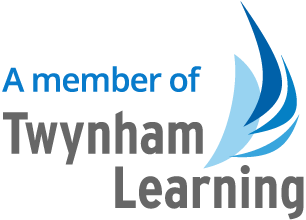Homework
Homework provides opportunities for pupils to practise their learning away from the direct support of teachers. When part of a whole school culture, homework can be essential to the learning process, with the potential to build schemas and strengthen connections within long-term memory. Research shows a strong connection between regular completion of homework and higher accomplishments in subjects such as English, Maths and Science. Homework can have a positive impact on average (+ 5 months), with pupils in secondary schools.
Overarching principles
Homework should link to classroom learning and follow the following principles:
- Embed - Consolidation of classroom learning into the long-term memory
- Practice - Refining knowledge or procedures learnt in the classroom to build learning habits
- Apply - Use learning from the classroom to complete a specific task
- Extend - Move learning beyond what has been achieved by adding breadth to existing knowledge
| Homework Should | Homework Should Not |
| Revisit and learn substantive knowledge | Require students to develop their own substantive knowledge base as they may get it wrong |
| Use information and materials that are readily available or provided | Result in students spending time on a non-essential task rather than spending time on the meaningful aspect of the task – i.e. designing posters, open ended research |
| Reinforce and allow practice of previously taught skills in the classroom | Require finishing off a classwork task |
| Be structured so that it is challenging without being overwhelming | Be set for the next day |
| Allow students to work independently and self-regulate | Be too challenging or require extensive parental support |
| Be acknowledged by the teacher in the lesson. To maximise impact, it also important that students are provided with high quality feedback on their work | Go unrecognised |
Online Platforms
Homework can be set on online platforms if the criteria fits with the guiding principles. There are a number of advantages that include; pre-existing courses and materials, instant feedback to students and records created so tracking is easier. The platforms used are:
- Maths - www.sparxmaths.uk/
- English - www.student.readingplus.com
- Science - www.carousel-learning.com
- French and Spanish - www.memrise.com
- Computer Science - www.senecalearning.com
For further information about these platforms please click on the videos below.
 |
How Much Homework
Key Stage 3
| Subject | Frequency | Suggested Time (Mins) | Suggested Tasks to Meet Guided Principles |
| Core | Once per week | 30-40 | Reading plus, comprehension, Hegarty/Sparks, Memrise, Seneca, retrieval practice, self-testing substantive knowledge and assignments testing prior learning (spaced learning). |
| MFL and Humanities | Once per fortnight | 30-40 | |
| All other subjects | Once per week | 30-40 |
Key Stage 4
| Subject | Frequency | Suggested Time (Mins) | Suggested Tasks to Meet Guided Principles |
| Core | Once per week | 40-60 | Comprehension, Hegarty/ Sparks, Memrise, Seneca, retrieval practice, self-testing substantive knowledge, assignments testing prior learning (spaced learning), specific revision tasks and practice exam questions. |
| MFL and Humanities | Once per week | 40-60 | |
| All other subjects | Once per week | 40-60 |
Expectations
Students
- Record homework and due date in student planner
- Check Arbor for instructions and resources
- Attend homework club to access support / resources if necessary
- Speak to subject teacher if additional support is required in advance of deadline
- Try their best and complete work set
- Meet deadlines set for all homework
Teachers
- Plan meaningful homework which meets the guiding principles above
- Set homework in line with the homework timetable
- Set homework at the start of the lesson to allow sufficient time to record details and answer questions
- Use the student planner to record and set deadlines for the next week
- Use Arbor to communicate instructions, deadlines and resources
- Ensure students know where to access additional support from you if required
- Provide feedback which improve outcomes without increasing workload – marked in class; tested in class; quizzes; discussion, whole class feedback
- Acknowledge complete homework and reward where appropriate
Homework Timetables
Shown below are homework timetables for each year group.
| Year 7 | Year 8 | Year 9 |
| Year 10 | Year 11 |


